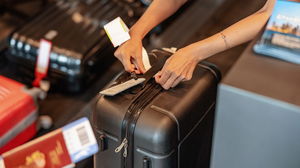MENU
All Cities
Sydney Melbourne Perth Gold Coast Brisbane Adelaide Canberra Darwin Newcastle Cairns Wollongong Byron Bay Redcliffe Townsville Mandurah Port Macquarie Hobart Mount Tambourine Coffs Harbour
All Regions
New South Wales Victoria Queensland Melbourne Region Sydney Region North Coast New South Wales West Australia Northern Rivers South Australia Sunshine Coast Tasmania Brisbane Region Greater Perth Port Stephens Tropical North Queensland Victorian High Country Shoalhaven Gippsland Tweed Coast
All Districts
Melbourne CBD Surfers Paradise Sydney Eastern Suburbs Southbank Central Business District Adelaide CBD Broadbeach Darwin CBD Brisbane CBD Hobart CBD Bondi St Kilda Collins Street Kings Beach South Brisbane Coolangatta City Centre Docklands Burleigh Heads
All Countries
Australia
United States
New Zealand
Italy France Spain Germany Croatia United Kingdom Brazil India Greece Poland Portugal Austria Japan Indonesia Thailand Argentina
Top Cities
Top Regions
Top Districts
Top Countries
booking
accommodation
travel
attractions
entertainment
restaurants
viator
hotel
- A few reasons you’ll love Foster Accommodation www.forsteraccommodation.com
- Advertise with us
- Add your business
Main Pages
- Home Page
- Add My Business
- Partners
- Latest News
- FAQs
- Contact Us
- About Us
- Front Page
- Subscribe
- Privay Policy
Featured Pages
Top Cities
- All Cities
- Sydney
- Melbourne
- Perth
- Gold Coast
- Brisbane
- Adelaide
- Canberra
- Darwin
- Newcastle
- Cairns
- Wollongong
- Byron Bay
- Redcliffe
- Townsville
- Mandurah
- Port Macquarie
- Hobart
- Mount Tambourine
- Coffs Harbour
Top Regions
- All Regions
- New South Wales
- Victoria
- Queensland
- Melbourne Region
- Sydney Region
- North Coast New South Wales
- West Australia
- Northern Rivers
- South Australia
- Sunshine Coast
- Tasmania
- Brisbane Region
- Greater Perth
- Port Stephens
- Tropical North Queensland
- Victorian High Country
- Shoalhaven
- Gippsland
- Tweed Coast
Top Districts
Top Countries
- All Countries
- Australia
- United States
- New Zealand
- Italy
- France
- Spain
- Germany
- Croatia
- United Kingdom
- Brazil
- India
- Greece
- Poland
- Portugal
- Austria
- Japan
- Indonesia
- Thailand
- Argentina
























